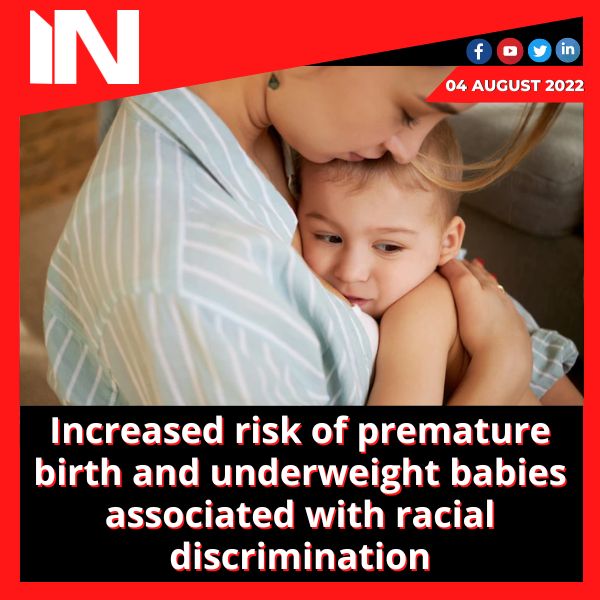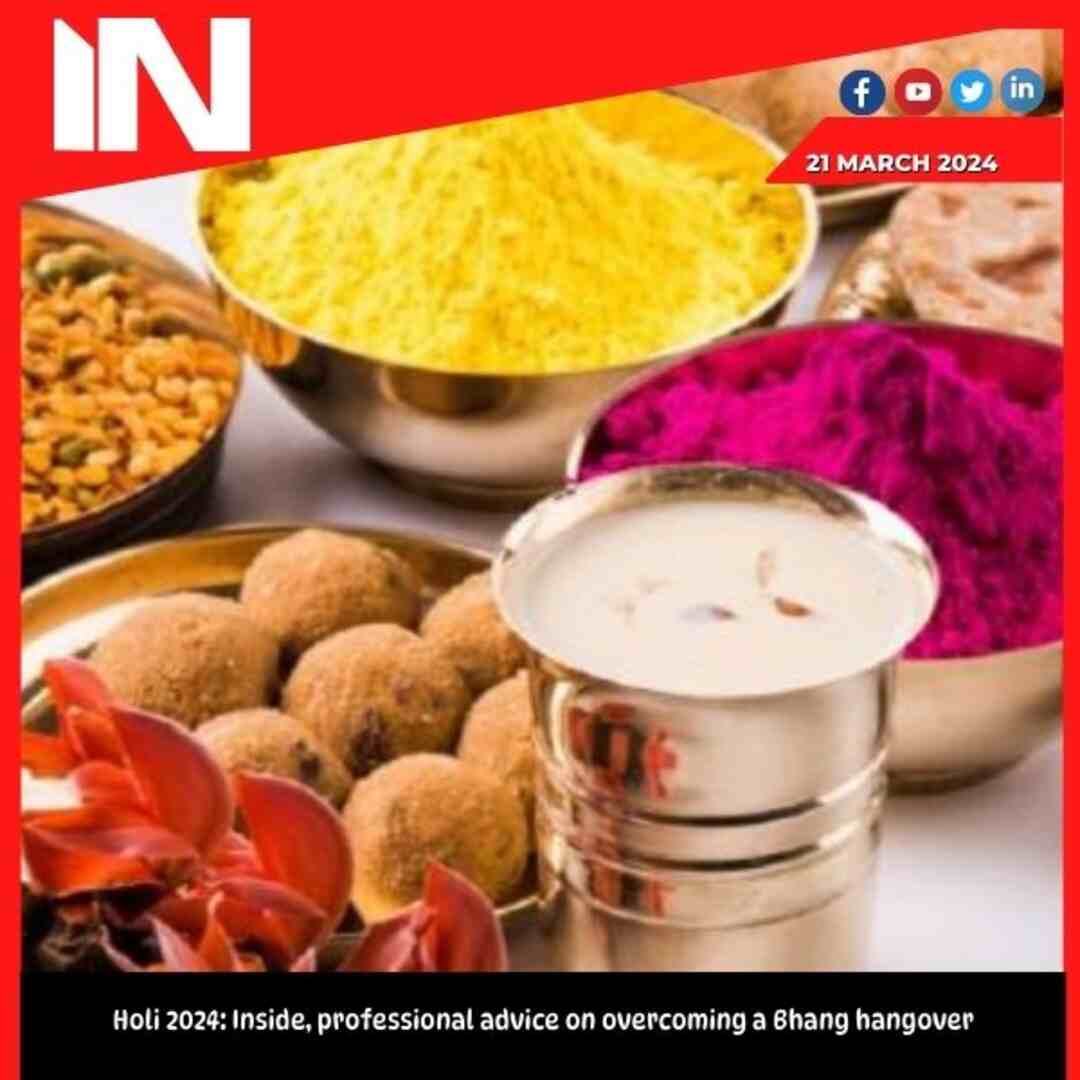health and remedies
Increased risk of premature birth and underweight babies associated with racial discrimination

Having an underweight and premature baby is linked to having encountered racial discrimination based on ethnicity, skin colour, or nationality, according to a pooled data analysis of the available evidence.
The research’s findings were disseminated in the journal “BMJ Global Health.”
According to the researchers, the study strengthens the body of evidence showing that racial discrimination increases the risk of negative health outcomes.
Race has been acknowledged as a social determinant of health and a risk factor for many diseases for a number of years. The evidence is mounting that upstream social, environmental, economic, and political factors are the primary causes of health inequities and that racism, not race, is frequently the underlying issue.
For instance, maternal mortality rates in the USA are 2-3 times higher for Black and Indigenous women than for White women. Similar disparities exist between Black and Asian women’s maternal mortality rates and White women’s maternal mortality rates in the UK.
The researchers searched eight electronic databases for pertinent studies on self-reported race discrimination and premature birth (before 37 weeks), low birth weight, and high blood pressure associated with pregnancy that had been published up to January 2022 in order to explore the patterns of racial disparities in pregnancy outcomes.
The final analysis included the findings from 24 studies overall, with an average of 39 to 9470 participants per study. The majority (20) of studies were conducted in
Participants in the study came from a variety of racial and ethnic backgrounds, including Black or African Americans, Hispanics, non-Hispanic Whites, Maoris, Pacific Islanders, Asians, Aboriginals, Romanis, native Germans, and Turks.
The analysis of pooled data revealed that for all the outcomes examined, racial discrimination was linked to a higher risk of preterm birth and having a baby that was small for gestational age.
Premature birth rates were predicted to be 40% more common overall. The odds of premature birth were decreased but remained 31% higher when low-quality studies were excluded. And while not statistically significant, the overall odds of a small-for-gestational-age baby were estimated to be 23 per cent higher.
When additional analyses of a few chosen data were conducted, similar outcomes were attained.
The majority of the studies included in the pooled data analysis were based in the USA and included few other marginalised racial or ethnic groups besides African Americans. The researchers also acknowledge that many of the studies were of low quality. They might not therefore be more broadly applicable to other racial and cultural groups.
However, they note that their findings “align with existing evidence on perceived racial discrimination as an important risk factor for adverse pregnancy outcomes.”
They say: “Racism permeates people’s daily lives and has profound effects on the experiences of people who are racialized. It influences other social determinants of health like employment, poverty, education, and housing as an upstream factor.
The availability of services and resources, such as referrals to specialised care, access to health insurance, and use of public health services, can be impacted by racism, which is more directly related to health.
The researchers emphasise a number of strategies, including the necessity of bettering clinician training, to address how racism affects health outcomes.
They propose that this can be accomplished by “universally removing well-documented examples of racial bias that continue to perpetuate health inequities.”
This includes the absence of instruction on dermatology and the various disease manifestations in non-White people, the unreliability of pulse oximetry technology, unjustified racial adjustments to renal function measurement, and insufficient instruction on personal biases and the social causes of health inequities.
Group Media Publications
Entertainment News Platforms – anyflix.in
Construction Infrastructure and Mining News Platform – https://cimreviews.com/
General News Platform – https://ihtlive.com/
Legal and Laws News Platforms – https://legalmatters.in/
Podcast Platforms – https://anyfm.in/
Trending
Holi 2024: Inside, professional advice on overcoming a Bhang hangover

Holi 2024: We are eagerly awaiting the arrival of this festival of colors, which is quickly approaching. Every year, the nation celebrates Holi with great fanfare and extravagance. Holi commemorates the eternal love and marriage of Goddess Radha and Lord Krishna. In addition, Holi commemorates Lord Vishnu’s victory over Hiranyakashipu, highlighting the idea that good always triumphs over evil. Holi will be celebrated on March 25 this year. Holika Dahan, also known as Chhoti Holi, is observed the day before Holi. On the day of Holi, many customs and rites are observed throughout India. The cities of Barnsana and Nandgaon celebrate Lathmar Holi, whereas Vrindavan celebrates Phoolwali Holi.
Holi 2024: Here are some professional suggestions to avoid Bhang hangover, ranging from eating a balanced diet to sipping herbal tea.
During Holi, a variety of snacks and beverages are made to be enjoyed with loved ones. The colorful, crispy, and delectable Holi snacks range from gujia to rasmalai to namakpare. Thandai, a delightful concoction of milk, spices, and sweets, is the queen of the drink table. Bhang is among the primary draws of Holi. For its euphoric impact, thandai is sometimes blended with powdered paste made from the female cannabis plant’s leaves and flowers. But after the first euphoria wears off, there’s also the inevitable hangover the following morning.
Methods for overcoming a hangover
Hydrate the body: Hydration is crucial for managing a hangover caused by Bhang during Holi. Sip on lots of water to flush out toxins and replenish your body’s moisture.
Consume coconut water: Coconut water and other electrolyte-rich beverages can help replenish lost nutrients.
A balanced diet: blood sugar regulation and nausea reduction can be achieved by eating a well-balanced meal high in carbohydrates, proteins, and healthy fats.
Herbal teas and rest: Herbal teas with relaxing properties, such as peppermint or ginger, can ease stomach discomfort. Your body can mend itself by resting in a quiet, dark environment.
Limit alcohol intake: Limit your alcohol and cannabis intake to prevent symptoms from getting worse. As soon as symptoms develop or continue, get medical help.
Group Media Publications
Entertainment News Platforms – anyflix.in
Construction Infrastructure and Mining News Platform – https://cimreviews.com/
General News Platform – https://ihtlive.com/
Podcast Platforms – https://anyfm.in
-

 Music2 months ago
Music2 months agoDalton Gomez, Ariana Grande’s ex, makes his Instagram debut alongside his new partner Maika Monroe.
-

 Web Series1 month ago
Web Series1 month agoSpoilers for Star Wars: The Acolyte, episode three: The new episode has caused the internet to go crazy.
-

 Music2 months ago
Music2 months agoMin Hee-jin will continue to serve as ADOR’s CEO, and following the shareholders’ meeting, HYBE names three new board members.
-

 Entertainment2 months ago
Entertainment2 months agoSawa Pontyjska, a Ukrainian model, is suing the Cannes Film Festival organisers, alleging that a security guard assaulted her on the red carpet.
-

 Hollywood1 month ago
Hollywood1 month agoDeadpool and Wolverine might shatter box office records, which would be unprecedented for an R-rated film.
-

 Entertainment2 months ago
Entertainment2 months agoKai Cenat, a Twitch celebrity, travels to Taiwan for this poignant occasion.
-

 Music1 month ago
Music1 month agoBianca Censori’s obscene Tokyo ensemble provokes indignation in Japan. while Kanye West flies economy after losing…
-

 Hollywood2 months ago
Hollywood2 months agoMovie Review: ‘Am I OK?’ is a charming comedy about friendship that features Dakota Johnson’s endearing genuineness.
















